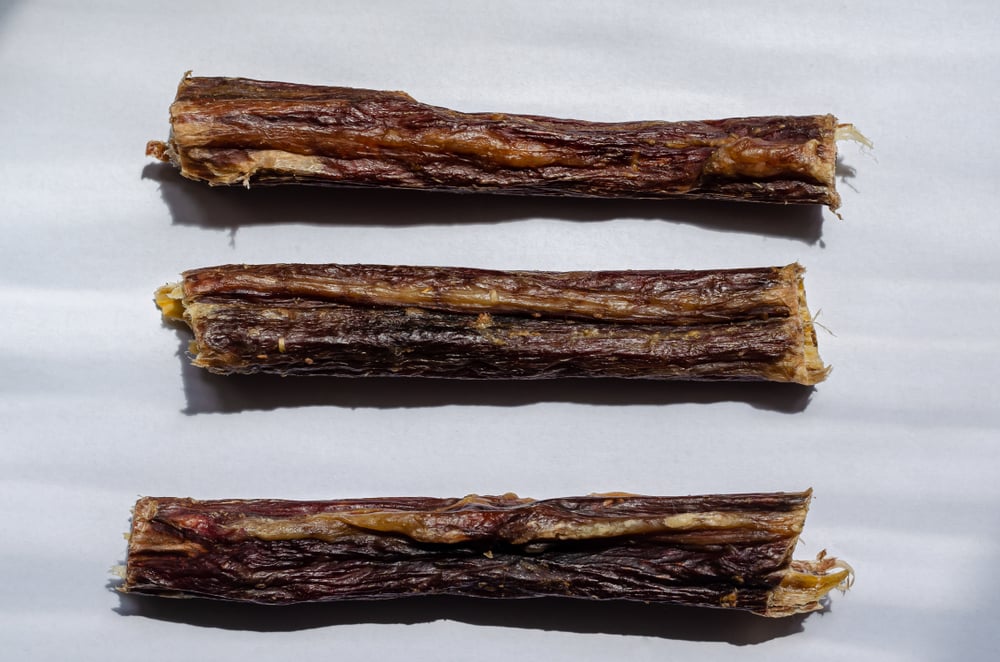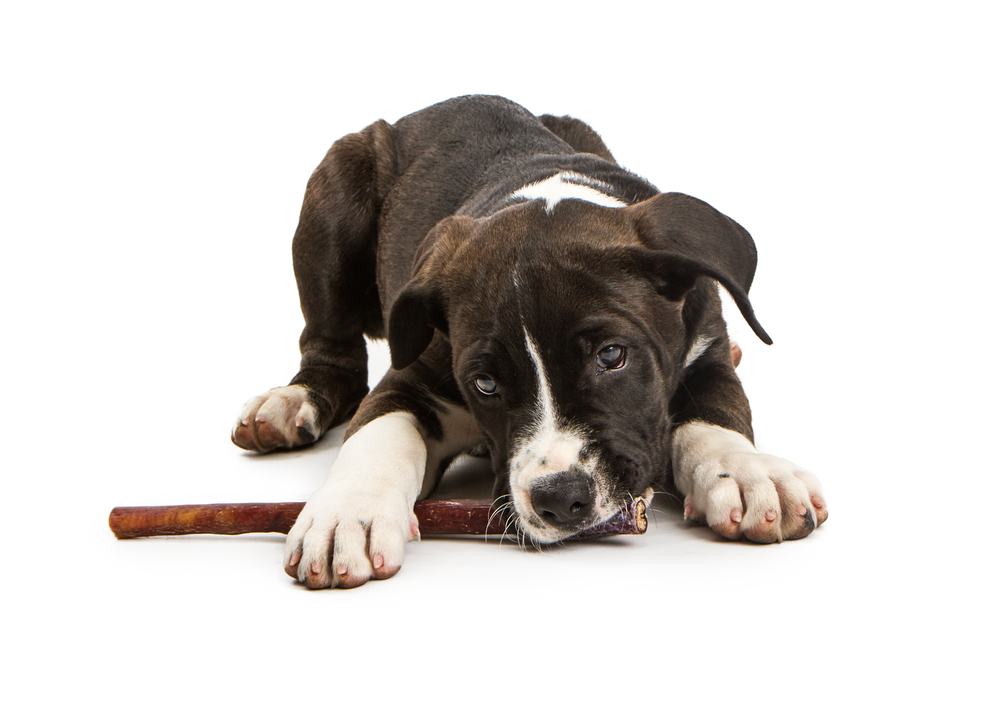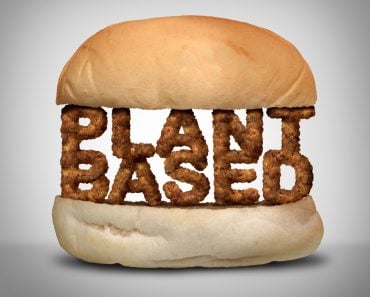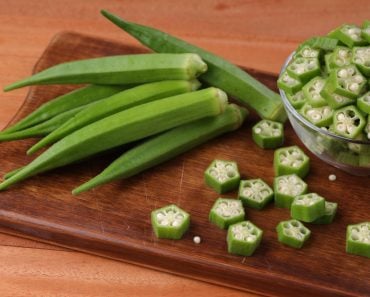Table of Contents (click to expand)
Beef pizzle refers to the penis of a bull, and is widely used as a chew stick for dogs. Being rich in protein, vitamins and minerals, it is also believed to benefit human health in many ways. It is cooked with added flavors for human consumption or it is dried, stretched and cut into pieces for canine chew sticks.
If you’re hearing this word for the first time, I would simply say, beef pizzle is made from bull penis, and is used as a bully stick or chew stick for dogs. People also include beef pizzle in their diet, due to its rich nutrient content.
Yes, that sounds pretty gross at face value, but are they really edible? Does eating it have any side effects? Above all, isn’t that awkward to eat a pizzle? Many questions are probably circling your mind right now! To find the answers, you should get comfortable and spend some time reading this article!

Recommended Video for you:
What Is Beef Pizzle?
The word pizzle traces its origin to the German word meaning sinew, which refers to a piece of tough fibrous tissue uniting muscle to bone; biologically, this is called a tendon or ligament. The word is now used in modern times to refer to the penis of an animal, especially a bull. In earlier times, it was displayed in French heraldry and used as a word of insult by Shakespeare. Beef pizzle was first rendered for commercial use as a glue, but its use later widened and eventually became popularized as a chew stick for dogs.
Are Beef Pizzle A Long-lasting Dog Treat?
Most commonly, it is simply dried and uncooked. Due to the richness in taste and its resemblance to the canine ancestral diet, dogs love beef pizzles! Although dogs adore it, it can sometimes be too pungent for the sensitive nostrils of dogs. Thus, they are treated in a diluted solution and rinsed clean to reduce odor. They are available in different shapes and sizes. They can be easily chewed up and broken down easily in the stomach, and are also good for teeth. Being low in fat, cholesterol, and carbohydrates, but boasting a rich protein content, they are definitely some of the best dog treats and are also ideal for puppies.

However, looking at the calorie content of the pizzles, they seem to pose some health risks. It has been found that these sticks contain about 9 to 12 calories per inch, which exceeds the normal caloric requirements for dogs and might cause obesity in your pets.
How Is Beef Pizzle Cooked?
Apart from being a rich treat for dogs, beef pizzle is also cooked and consumed by people in different parts of the world. Cooking beef pizzle is not very difficult, but cleaning it properly is very important. Sautéed beef pizzle is so tender that it releases enough juices to make a rich stew base.
The most common method of cooking pizzle is as follows:
The pizzle is boiled in water and then allowed to cool. The urethra, a long thin tube, is removed by slicing the pizzle along its length. The meat is boiled and cooled again. It is then cooked along with garlic, vegetables, pepper, cumin and thyme in olive oil. Finally, white wine is poured into a pot; the cooked meat is soaked and served.
Are Beef Pizzles Contaminated?
In a scientific study, it has been proven that beef pizzle contains bacteria, such as Clostridium difficile, Staphylococcus aureus, and Escherichia coli in variable levels. Should we be concerned about getting infected by this bacteria? No, because we encounter these bacteria every day in the kitchen, on sponges, cell phones and even our own skin. In other words, they don’t pose any real threat to humans. Also, the canine digestive system is different than humans, and can handle a lot more bacteria than ours. So no worries! You can definitely treat your dogs with pizzles.
Beef pizzle is a part of various cultures across the world, since they are believed to posses special health qualities. In Jamaica, beef pizzle is stewed with rum, bananas and pepper to make cow cod soup. In countries like Bolivia and Malaysia, beef pizzle is cooked in different forms and eaten by the majority of people. Despite being appalling to some, you should try these interesting “morsels” if you’re curious about tasting different types of exotic food.












